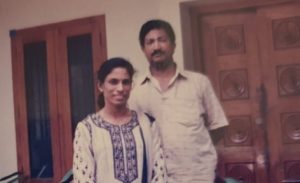Bangladesh extends curfew due to court decision on job quotas that led to violent protests.
Bangladesh extends curfew, awaiting court ruling on hiring quota that sparked deadly clashes between police and protesters led by student groups.

The situation in Bangladesh is tense as the government has extended a curfew across the country in anticipation of a ruling by the Supreme Court on a civil service hiring quota. This quota has sparked days of violent clashes between police and protesters, resulting in the loss of many lives.
The demonstrations, organized mainly by student groups, first began weeks ago to protest a quota system that reserves up to 30% of government jobs for the relatives of veterans who fought in the country's war of independence in 1971. The protests turned violent on Tuesday and have continued since, with reports of at least 103 deaths according to the Daily Prothom Alo newspaper.
Despite the chaos, the Bangladeshi authorities have not released any official numbers of those killed or injured. The police have used tear gas, rubber bullets, and smoke grenades to disperse the crowds of stone-throwing protesters on the streets and university campuses. Although there were reports of sporadic clashes in some parts of the capital city of Dhaka on Saturday, it is unclear if there were any fatalities.
As the Supreme Court prepares to make its ruling on the abolition of job quotas, the government has deployed soldiers to patrol cities across the country. Additionally, a nationwide internet blackout is still in effect, and a curfew will be in place on Sunday with a brief relaxation from 3pm to 5pm for essential errands. In light of the current situation, Prime Minister Sheikh Hasina's government has declared Sunday and Monday as public holidays, with only emergency services being allowed to operate.
This unrest has brought attention to the issues within Bangladesh's governance and economy, as well as the frustration of young people who are struggling to find good jobs after graduation. It is also the biggest challenge Prime Minister Hasina has faced since her fourth consecutive term in office began after January's elections, which were boycotted by the main opposition groups.
The protesters argue that the quota system is unfair and benefits supporters of Hasina's Awami League party, who led the independence movement. They are calling for a merit-based system instead. However, Hasina has defended the quota system, stating that the veterans who fought for the country deserve the highest respect, regardless of their political affiliations.
In an attempt to find a resolution, representatives from both sides met on Friday night, and the government has expressed a willingness to discuss the demands of the protesters. The main opposition party, the Bangladesh Nationalist Party, has also backed the protests and plans to hold their own demonstrations, as many of their supporters have joined the student-led protests. However, the party has denied any involvement in the violence and rejected the ruling party's accusations of using the protests for political gain.
The Awami League and the BNP have a long history of accusing each other of causing political chaos and violence, with the most recent being during the national election, which was marked by a crackdown on opposition figures. Hasina's government had accused the opposition party of attempting to disrupt the vote.
In 2018, the government had stopped the job quotas following mass student protests. However, in June, the High Court reinstated the quotas after petitions were filed by relatives of 1971 veterans. The Supreme Court has since suspended this ruling, pending an appeal hearing. This situation has brought the country to a standstill and has raised questions about the future of the job quota system and the country's political landscape.
2 Views






